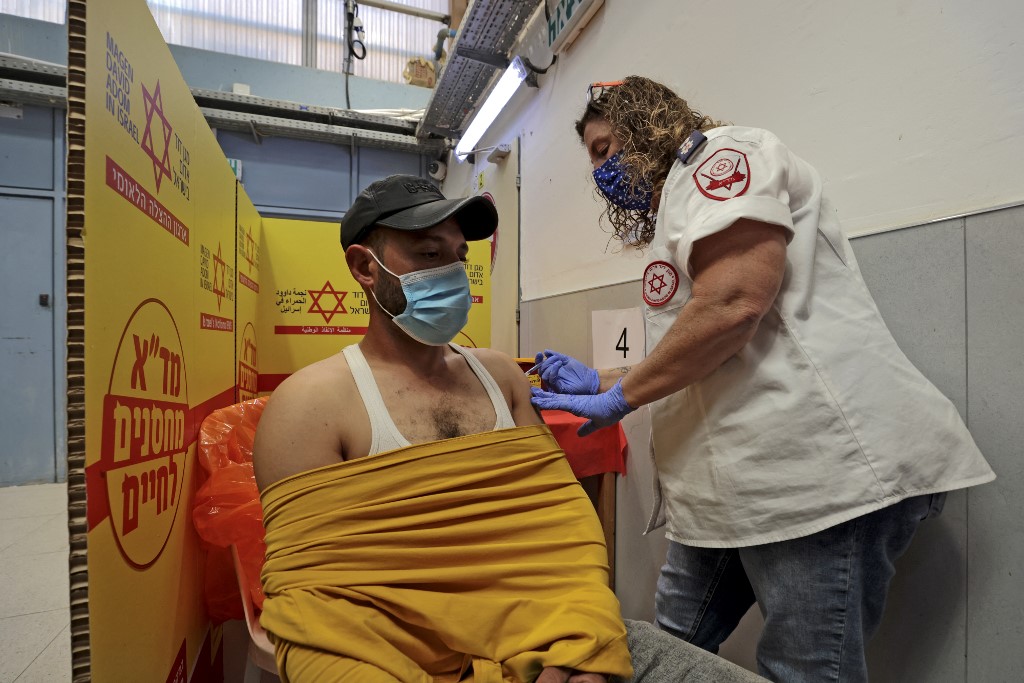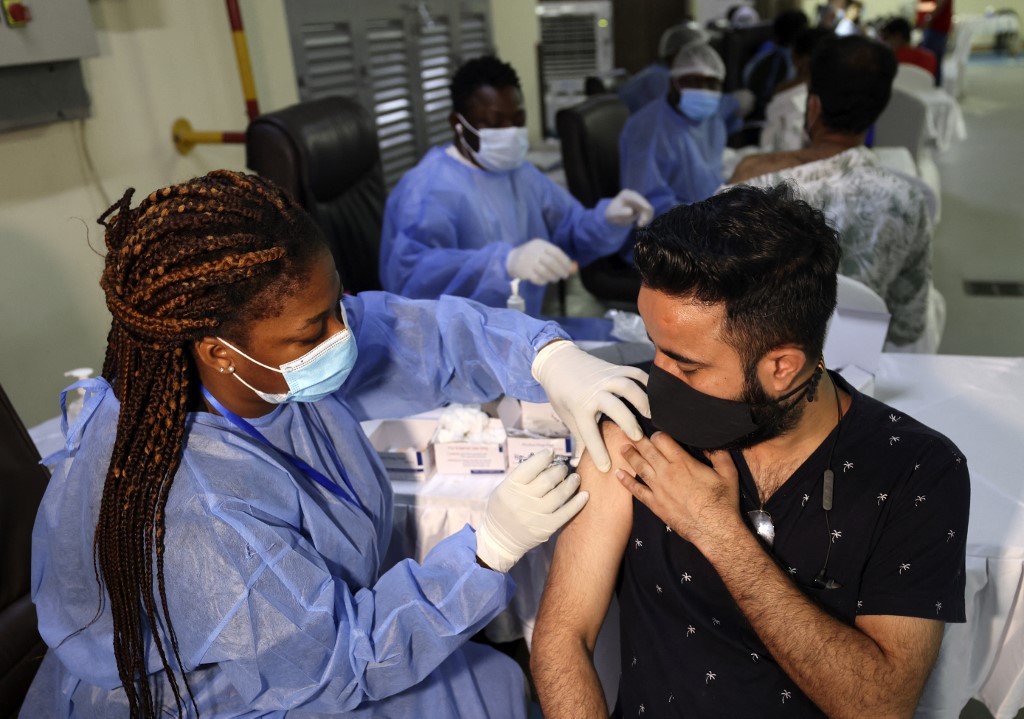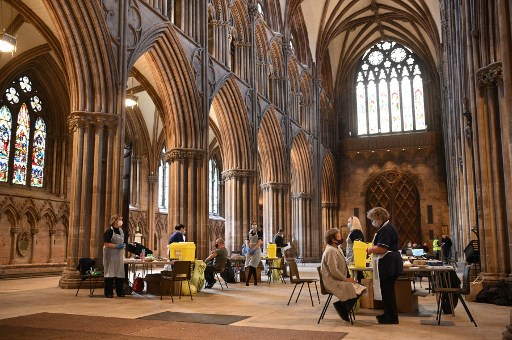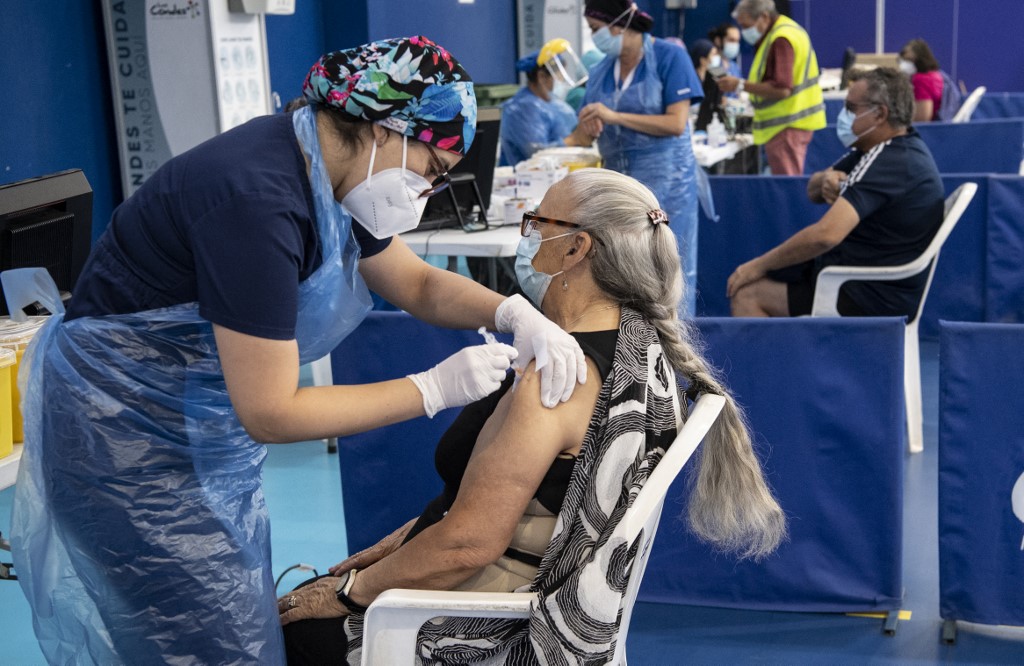KUALA LUMPUR, March 22 — Malaysia is set to face the real challenge of the Covid-19 vaccination programme in about a week’s time when shots are offered to the elderly and people with comorbidities.
Unlike frontline workers in Phase One of the coronavirus inoculation drive, most of whom are civil servants who have been personally identified for vaccination, Phase Two will be the real-world test of the vaccine rollout among the general public in Malaysia.
With only about 1.5 million people aged above 60 or those with underlying health conditions signing up on MySejahtera for Covid-19 jabs — comprising only 15.8 per cent of Phase Two’s target population — it remains to be seen if the government will continue with the passive method of voluntary MySejahtera registrations, or use more active ways to encourage vaccination.
Various countries use mass vaccination sites, home inoculation programmes, and vaccine on wheels campaigns to ramp up their Covid-19 vaccine rollouts.
Malaysia has managed to vaccinate about 1.2 per cent of the population with the first dose as of March 20, or 402,650 people, in nearly a month since the launch of the national Covid-19 vaccination programme last February 24. These are all frontline workers.
Based on Our World In Data, as of March 19, Israel has managed to administer 111.7 doses per 100 population, the highest among all nations, followed by the United Arab Emirates’ (UAE) 72 doses per 100 population, Chile (44 doses per 100 people), and the United Kingdom (42.7 doses per 100 people).
Half of all adults in the UK have received their first dose of the coronavirus vaccine, the UK’s Department of Health and Social Care said Saturday. A total of 26.8 million people in the UK received first doses between last December 8 and March 19. The UK targets to vaccinate all adults against Covid-19 by the end of July; there are 52.7 million adults in the UK.
The Malaysian government has set an ambitious target of vaccinating 27 million adults by this December, bringing forward the initial March 2022 deadline, to achieve herd immunity in less than a year.
Malaysia has divided the National Covid-19 Immunisation Programme into three phases. Phase One (February to April) targets 500,000 frontliners, Phase Two (April to August) targets 9.4 million individuals with comorbidities and those aged above 60, and Phase Three (May 2021 to February 2022) is for 13.7 million individuals above the age of 18.
During Phase Two and Three, if an area or locality turns into a red zone, reporting 40 Covid-19 cases and above, individuals in that locality will also be given priority for vaccination. From Phase Two onwards, 15,000 workers will be placed at 950 vaccination sites nationwide.
The vaccination programme in Malaysia also uses an online appointment system, in which individuals can register for the vaccine using the MySejahtera application. Following that, they will be given appointments according to priority groups. People can also register for vaccination offline, though this appears to be less straightforward.
Vaccines are given free to all residents in Malaysia, including immigrants both documented and undocumented. While private vaccination programmes have yet to be implemented, the government has not restricted private hospitals from procuring their own vaccines from individual pharmaceutical companies.
Meanwhile, private hospitals and general practitioners (GPs) have also been roped in as vaccinators in the public Covid-19 inoculation drive to ensure better outreach.
Israel Procured Vaccines Exceeding Demand

Israel has managed to procure more vaccine supplies than demand from manufacturers Pfizer-BioNTech and Moderna.
The country with a 9.3 million population could procure so many vaccines as it agreed to give vaccine developers weekly data from its vaccination campaign.
This includes infection, vaccination numbers, patient demographics such as age and gender, which are valuable data sources for pharmaceutical companies. Hence, the vaccine manufacturers agreed to supply vaccines to Israel until immunisation of 95 per cent of the population is achieved.
The country also vaccinates anyone above the age of 16 and maintains a very strict supply chain. For instance, at a vaccine centre if there are leftover doses for the day, the vaccine centre will call or send text messages urging people to attend, no matter what age group, they are in to avoid wastage.
Unvaccinated UAE Government Servants Must Do Covid-19 Tests Every Fortnight

The UAE has offered free vaccines, either Pfizer-BioNTech or China’s Sinopharm, for all their citizens.
Although not mandatory, government employees in Abu Dhabi who choose not to get vaccinated will have to take a PCR test every two weeks to test for Covid-19.
Meanwhile, a handful of wealthy people can pay to access the UAE Covid-19 vaccination programme to get the Chinese Sinopharm vaccine, as a way to bring tourism to the area.
The elderly and those with chronic diseases in the UAE can also opt for the home vaccination programme, in which a health care worker will visit their home and administer the vaccine upon assessing their health condition. These individuals can directly book this service through a hotline.
UAE also launched a vaccine on wheels campaign, in which two mobile clinics with 11 nurses and doctors go around different areas in Dubai to vaccinate people. In less than one month, as of March 8, both clinics managed to vaccinate 7,688 people.
UK Uses Stadiums, Cathedrals As Mass Vaccination Sites

The UK government was quick to act when Covid-19 became a pandemic, as by April 2020, the government already set up a Vaccine Taskforce (VTF) to ensure that the UK population gets access to safe and effective Covid-19 vaccines.
To ramp up its vaccine rollout, the UK has used football stadiums and large-scale venues as vaccination sites, like sports centres, race courses, and showgrounds, besides hospitals. The UK government said the UK has thousands of vaccine centres, GP practices, and pharmacies providing Covid-19 vaccines. Some 98 per cent of people live within 16km of a vaccination centre, which includes mosques, in England.
Over 1,500 vaccination sites have been set up in England alone, including GP clinics and community pharmacies. The larger vaccination hubs offer speedy inoculations for many, while the smaller community-based services are to ensure broad access.
Cathedrals across the region in the UK have been converted into makeshift Covid-19 vaccination sites for those above the age of 70, as well as vulnerable groups. People queueing at the cathedrals while waiting for their vaccine were able to enjoy soothing organ music at the grand buildings.
The UK government has also set up a live dashboard that provides information on the number of individuals who have received the first and second dose of the Covid-19 vaccine.
Besides that, the UK government has also recruited 80,000 people for the vaccine rollout across the country. This workforce includes St John Ambulance volunteers, independent nurses, occupational health service providers, as well as airline cabin crew with skills that can provide support for the vaccination campaign.
Home Vaccination Programme In Chile

Chile — which has administered 44 doses per 100 population, the third highest in the world — did not have much of a problem in setting up their Covid-19 vaccine rollout, as they have a national immunisation programme that distributes flu shots and childhood vaccines every year.
In Chile, no appointment system is used, but each day is reserved for a specific group of people based on a calendar. For example, March 15 is allocated for those with chronic illness between the age of 42 and 45. The weekends are then reserved for those who missed their appointment throughout the week.
Vaccines in Chile are also universal for both public and private sector beneficiaries as they are facilitated by the national immunisation registry, so no matter where one gets vaccinated in Chile, they remain on the same platform.
Hence, for the second dose, individuals can go anywhere they want. For example, if they are on a trip away from their homes, they can just go to the nearest vaccine centre to get vaccinated.








